Dan Snaith is a man of many talents – only one of them falling into the sphere of pop-electro moniker Caribou. Upon listening to singles from album ‘Our Love’ (set for release on October 3rd), I had the awkward experience of simultaneously throwing off my clothes in sunlight rejoice, wishing myself to a dirty bass hole and letting off a single tear. Whilst I gathered my clothes from the floor and apologised to surrounding children I also wondered, can many other artists evoke this kind of conflicting response?
After making a 7am call to a very confused Amsterdam Hotel concierge (sorry Dedrick), I was finally connected with the Snaith himself. Discussing the four year Caribou hiatus, playing as part of a collective, the euphoria/melancholia feelings and eating grilled cheese with Four Tet – something is very clear, Caribou makes music to share and to enjoy. Cue swoon.
IC: So you just played Bestival which looked incredible, how was that?
DS: Yeah Bestival’s an amazing one, the show was so much fun. We were there all day and out on the Isle of White which was beautiful. We got to watch Outkast lots of other things during the day. It’s the end of the summer festival season here so it felt like really going out with a bang. The amazing thing about playing UK festivals is they look like a city, at night you can see the lights going out into the distance and it feels like this is how a festival should be.
IC: Well you’ve played all around, I’m wondering how should a festival ‘not’ be? What would constitute a bad one?
DS: They can be so different, I guess the ones that we’ve never played include SXSW. That’s my idea of what a festival should not be because it’s all about marketing and promotion and half the people you’re playing to are A&R people. I’ve always avoided it actually, I’m not particularly interested in playing that festival. I’ve heard so many people have had bad experiences there.
IC: What’s your favourite space to play in? Do you even prefer the festival format to a private gig?
DS: Well we’ve had such amazing experiences this summer but I am kind of looking forward to getting back and doing our own shows. You can get away with playing a more diverse range of music. We’ve been playing a couple more songs of the new record, like three or four of them, the more up-tempo ones, at your own show you can play more of a mix of music I guess and also have more control over the sound and lights and that kind of thing. I mean we’re so lucky to get to do both I would definitely not want to stop doing either. I feel really lucky to get to go back and fourth between them.
IC: You mentioned that you’ve only played a few of the singles from the new album and you’ve definitely been playing it coy with the rest of them. What can we expect from the rest of the album, is it going to take a turn for us?
DS: Definitely the songs that people have heard so far are the more uptempo ones on the record so you’ll definitely see a more variety of mood. The whole thing is a kind of reflection on love and my life and the life of people close to me for the happier moments and the more melancholic moments. It’s hard for me to sum it up but there are more soulful elements of the record and I think its different from previous Caribou records people might have been following.
IC: When I was listening to the tracks from the new album today I really recognised the light and dark dichotomy in the tracks. Although they’re quite upbeat and up tempo you’ve also got a very dark clangy bass throughout. Is that dichotomy something you like to explore in your music?
DS: It is, definitely. One of the things that I love most about music is the ability to have contradictions right next to each other – it’s a unique artform like that, it can be melancholy and euphoric at the same moment, not even next to each other, just at the same time. That’s kind of my experience of the stories that I wanted to put on the record. These elements are right next to each other in life they’re not things that are exclusive from one another. We live in a world where light and dark is all jumbled up and music is uniquely good at conveying those too things together.
IC: Well this record is vastly different to any other Caribou album we’ve heard. Do you think that this is resonant of a changing personal narrative or are you thinking of where the ‘scene’ is going?
DS: I’m definitely not trying to cater, it’s the combination of a couple of things. I guess the intent is quite different with this record, it’s the first record that I’ve been thinking about making music for everyone to share. I wanted it to be outward-looking rather than just thinking about life in my studio. But that for me doesn’t mean I’m thinking about what genre to follow or whats popular, it’s about making music that’s warm and generous and puts as much of my personal self into. I think that’s why the vocal is more upfront, the sound is more in focus than they were on the last record. Also I mean, these records are also a document of my life at the time and since the last one four years have passed. It would be strange for me if I kept making the same music – these records are capturing me in the moment of my life so things are always going to change and develop.
IC: So the music is related directly to you yet I’m a little confused because you often refer to Caribou as a collective but also as a solo project. What role does your band play in the construction of the music?
DS: I don’t know what way to make it clear, the records are just me, the band is not involved at all in the records. We live all over the world and I’m just working on the records day to day by myself. Apart from collaborations from Jessy Lanza and Owen Pallet on the record its just myself making it. But the live show really is a collaborative thing even though we’re playing music that I wrote the four of us break it down and we play things quite differently from how they are on the record a lot of the time. All those decisions, all the work in real life and making sure how we’re going to play it go down between the four of us which is great for me because it gives me the indulgent mode of working by myself and enjoying that process of being in control of where the musics headed but also the thrill of collaborating with the guys on stage.
IC: It’s so interesting to me because we’re always talking about the contentious practise of electronic musicians play live. Do you think that its important for audiences to hear it in that kind of deconstructed style – is it a critical factor for live?
DS: The thing that frustrates me about a lot of electronic music performances is that they don’t take into account that you’re in a room with a bunch of people. One of the great things is that in that moment things could go wrong, things could happen differently every time, you can see the interaction between people on stage focusing on trying to make it special in that moment – rather than just replaying or pressing ‘space’ bar and having the song from the record come one. It’s a crucial thing for me – the live show lives in its own right and it’s not just a track replayed from the record – you feel like something musical is happening, so that’s something we always think about.
IC: So on collaborations, in your record you have a few features – how important is the practise of collaborating to you when you’re making a record?
DS: Well its not something I’ve always done, there are records that have had very little collaboration. But both of the collaborators on this record, Owen and Jessy were quite deeply involved in the record, moreso than you hear them. You know you hear Jessy sing, and she co-wrote the song ‘Second Chance’ and Owen plays on four tracks on the record but they’re both involved – like really early on when I didn’t know what the record was going to sound like or how I was going to finish tracks they gave me lots of feedback and helped me try different ideas. It’s so vital to me – advice from people because when you’re working by yourself you loose perspective really quickly. So both their musical input, which I would have never though of as they come from a very different musical place than I do – but also they themselves are embedded in the whole record.
IC: Do you think that its important for producers to collaborate? Is it your view that being an introverted producer can harm your work?
DS: It just makes it different, it definitely helps to have experiences of collaborations – its such a musical mode and its such an important part of music. Before I started recording I did lots, I played in bands in high school and I’d made music by myself and I’d DJ’d, I kind of just tried everything I possibly could to do with music. I also worked in an orchestral setting and did those kind of things because they offer such different elements and they show you how diverse music can be.
IC: I also read something quite random today and it was that because you’ve done these mammoth DJ sets, you enjoy seeing other DJs eat while they’re DJing. It’s a little thing with us here at Stoney Roads, we love food and we love music. How important is it to you to eat during your sets and do you think it’s something we should be encouraging people who DJ extensively to do?
DS: (laughs) Well you make it sound like some kind of fetish!
IC: I mean you mentioned it was rare to see and I was like wow, (laughs) I’ve never really seen DJs tuck in before!
DS: Well I like to eat some fruit or nuts or whatever. If you’re playing for a long time you should sustain yourself. If I have a bowl of fruit I’ll start offering it to people in the room and the crowds in front of me, it’s a nice way of connecting with people and doing something unexpected. I definitely think foods important and why stop eating just because you’re DJing in front of a group of people?
IC: What would be your absolute favourite snack behind the decks?
DS: Well this is the favourite one I’ve had so far; we played in a club called Luxe which is in Lisbon in Portugal and they have a little kitchen in the club and they make these amazing, I don’t know what kind of cheese they use, but they make these grilled cheese sandwiches and the guy who runs the club knows that myself and Keiran (Four Tet) knew that we would be hungry and he just arrived with this plate of food for us and hell, it hit the spot.
IC: I love cheese as well! Damn. Well my last question for you is if you could have anyone to do a remix of ‘Our Love’, dead or alive, who would you choose?
DS: Mozart maybe? I’d like to see what Mozart would like to say.
IC: (laughs) Well you’ve got a lot of classical influence in there so it would make sense – what do you think he would bring to the track?
DS: He’d probably bring a string quartet and a powdered wig and a fake mole that you put on your face. That would be a pretty good vibe.
IC: He’d definitely bring some swag to the party.
Follow Caribou on SoundCloud here.
@IsabelleComber
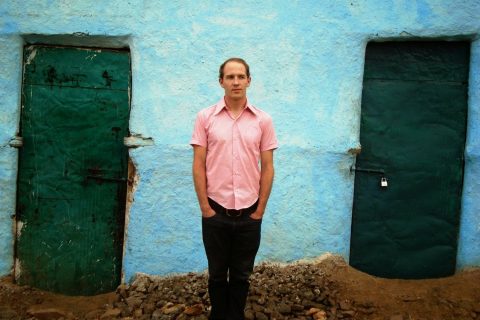
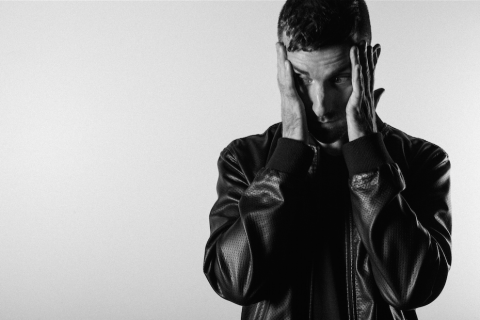
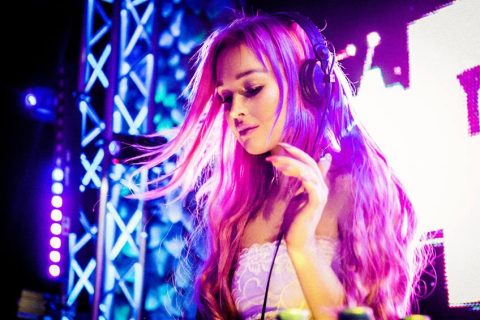
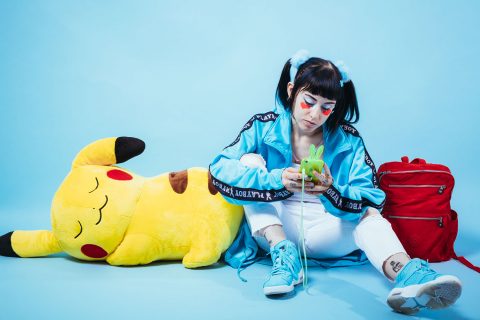
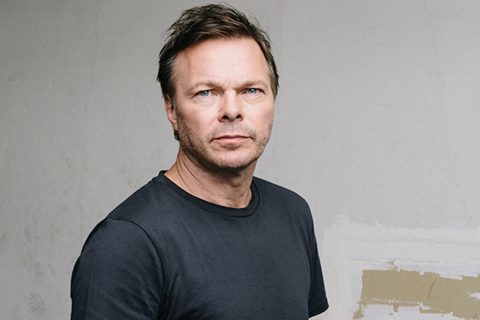
Comments